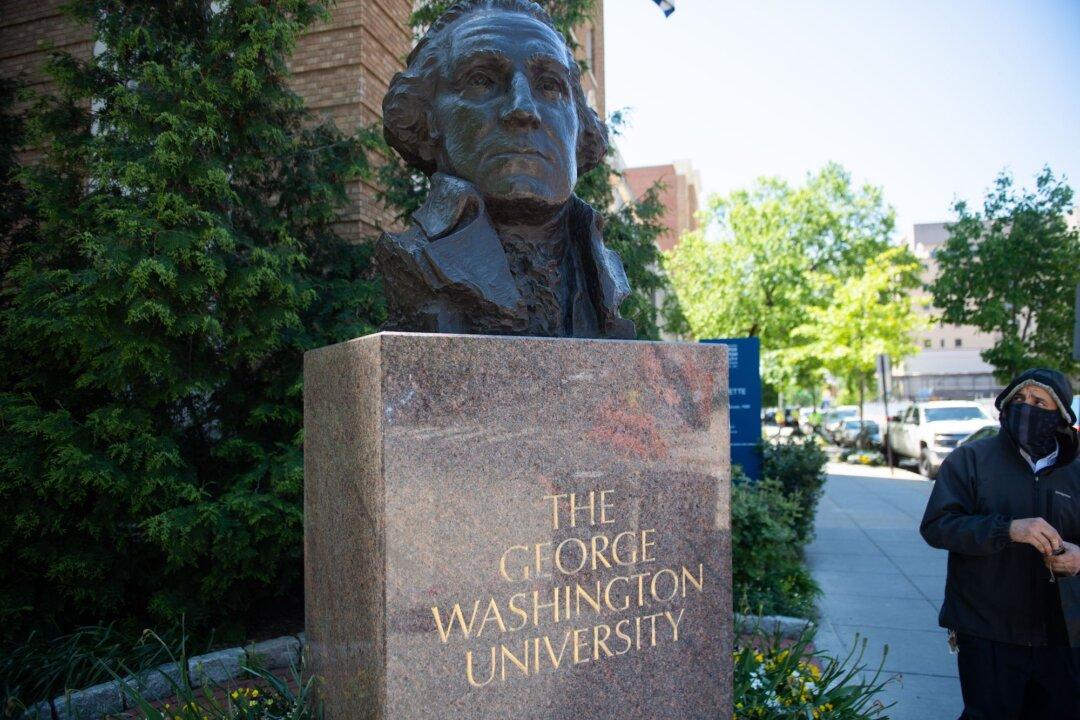George Washington University (GW) has reached a $5.4 million settlement with former students who accused the institution of breaching its contract when they were sent home to attend classes online at the onset of the COVID-19 pandemic.
Under the terms of the settlement agreement, approved on Wednesday by a federal judge in the District of Columbia, each of the four student plaintiffs will receive $10,000. After covering attorney fees and expenses of up to $1,782,000, the rest of the settlement fund will be distributed as tuition refunds among approximately 18,000 students attending online classes during the spring semester of 2020.





